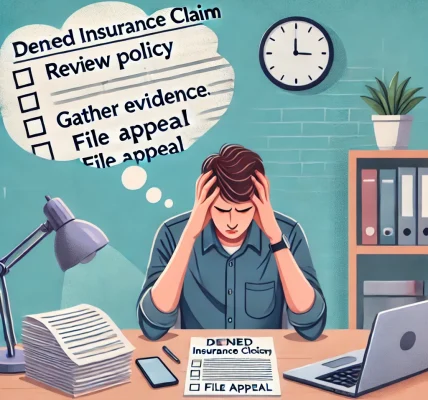Health insurance provides financial security during medical emergencies, but navigating the claims process can often be complex and frustrating. Errors, incomplete documentation, and missed deadlines can lead to claim delays or denials. To help you maximize your reimbursement and avoid unnecessary stress, here is a step-by-step guide to filing a hassle-free health insurance claim.
Understanding the Basics of Health Insurance Claims
A health insurance claim is a request made by a policyholder to the insurance company for reimbursement of medical expenses covered under the policy. There are two main types of claims:
- Cashless Claim: The insurer directly settles the bill with a network hospital.
- Reimbursement Claim: The policyholder pays the medical expenses upfront and gets reimbursed later.
Step-by-Step Guide to Filing a Health Insurance Claim
Step 1: Review Your Insurance Policy
Before seeking medical treatment, thoroughly read your health insurance policy to understand:
- Coverage details, inclusions, and exclusions
- Network hospitals for cashless treatment
- Pre-authorization requirements
- Claim submission deadlines
- Deductibles and co-payments
Step 2: Seek Treatment at a Network Hospital (For Cashless Claims)
If your insurance provider has a network of hospitals, opt for treatment at one of these facilities to avail of cashless benefits. Inform the hospital’s insurance desk and submit the required pre-authorization form.
Step 3: Collect and Organize Required Documents
Proper documentation is key to a successful claim. Essential documents typically include:
- Policy details (insurance card, policy number)
- Hospital bills and receipts
- Doctor’s prescription and treatment summary
- Discharge summary
- Diagnostic reports and pharmacy bills
- Payment proof (for reimbursement claims)
Step 4: Fill Out the Claim Form Accurately
Complete the health insurance claim form with accurate details. Any inconsistencies or missing information can lead to delays or rejection.
Step 5: Submit the Claim on Time
Different insurers have different timelines for claim submission. Ensure you file your claim within the stipulated period to avoid rejection.
Common Mistakes to Avoid When Filing a Health Insurance Claim
1. Not Informing the Insurer on Time
Most insurance companies require policyholders to inform them within 24-48 hours of hospitalization (for emergency cases) or get pre-authorization for planned treatments.
2. Providing Incomplete Documentation
A common reason for claim denials is missing or incorrect paperwork. Double-check all required documents before submission.
3. Ignoring Policy Exclusions
Many claims are rejected because the treatment falls under policy exclusions. Always verify whether the treatment is covered before filing a claim.
4. Not Retaining Copies of Submitted Documents
Always keep copies of all submitted forms, receipts, and correspondence with the insurer.
5. Accepting Claim Denials Without Appeal
If your claim is denied, review the reason and appeal the decision with supporting documents if necessary.
Pro Tips for a Hassle-Free Reimbursement
- Choose Network Hospitals: Opting for a cashless claim reduces out-of-pocket expenses and paperwork.
- Keep Records Digitally: Maintain scanned copies of medical records and bills for quick access.
- Understand Co-pay and Deductibles: Be aware of the out-of-pocket costs before undergoing treatment.
- Communicate Clearly with the Insurer: If you receive queries or requests for additional information, respond promptly.
Final Thoughts
Filing a health insurance claim doesn’t have to be overwhelming. By understanding your policy, keeping thorough documentation, and avoiding common pitfalls, you can ensure a smooth and hassle-free reimbursement process. If you ever face claim rejection, don’t hesitate to appeal with proper evidence. Being proactive and informed will help you get the financial support you deserve during medical emergencies.




